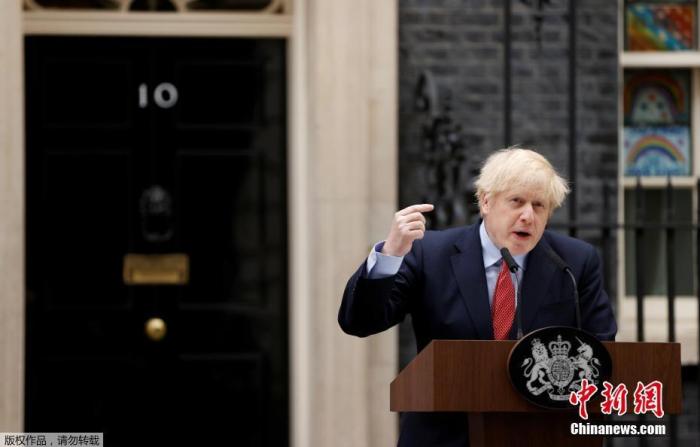Chinanews, September 17th, a comprehensive report, recently, the British House of Commons passed an "Internal Market Bill" proposed by Prime Minister Johnson on second reading that tried to "rewrite" the Brexit agreement.
The bill caused serious differences between Britain and Europe and caused controversy within the United Kingdom.
According to the British Broadcasting Corporation (BBC), Johnson has reached a compromise with some Conservative MPs, saying that he will agree to amend part of the bill. Before he exercises the powers that may violate international law in the bill, he will allow the MPs to vote. .
Data map: British Prime Minister Boris Johnson delivered a speech at 10 Downing Street, London.
According to reports, on September 9, local time, the British government suddenly proposed the "Internal Market Act", which overturned some of the promises made to the European Union in January this year, and will unilaterally change many Northern Ireland regulations in the Brexit agreement.
The content of the bill mainly concerns the tariff regulations of Northern Ireland goods and the state subsidies for British companies.
In this regard, not only the EU is strongly dissatisfied, but many officials in the British government have also admitted that this action violated international law "in a very specific and limited scope."
Johnson's approach also stirred up waves in his Conservative Party.
Many Tories, including Brexitists, are reluctant to participate in this "violation action."
They have requested that the relevant draft be withdrawn before the debate in the parliament.
Former British Prime Minister Cameron and John Major are among the opposition.
The two worried that the British move might lose international credibility and endanger the fragile peace in Northern Ireland.
Lord Keen, Scottish Attorney General, therefore resigned.
In his letter of resignation, he told Johnson: "I find that my obligations as a legal official are increasingly difficult to reconcile with your policy intentions."
In addition, Ed Miliband, the shadow business secretary of the British Labour Party, also stated that the Labour Party will continue to oppose the bill.
He said: "This has not solved the problem of illegality, damaged our reputation around the world, and damaged our future prosperity."
In this regard, Johnson emphasized that it is necessary to criticize the Brexit agreement and the UK needs a "safety network" to protect the relationship between Northern Ireland and other parts of the UK.
Many ministers in the Johnson cabinet also argued that the bill aims to clarify ambiguities and play a protective role in the event that trade negotiations fail.
British Home Affairs Minister Malthouse said: "It seems to me wise to formulate a protection policy."

